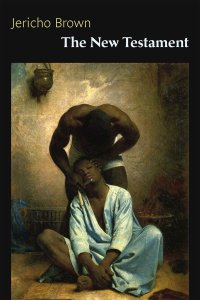It’s that time of year! We’ve asked guests and contributors we’ve featured on The Blood-Jet Writing Hour in 2014 to share with us their favorite books, literary magazines, and reading series from the year.
This post features poet and editor, Scott Wiggerman, co-editor of Wingbeats II. He writes:
In no particular order, here are some poetry books published in the past year that impressed me in various ways:
- Victoria Chang’s The Boss (McSweeney’s, 2013)
Once I got into the rhythm of Chang’s unpunctuated quatrains, I couldn’t put this book down. “The Boss” is a shifting character in every poem in this fascinating collection, sometimes literally a boss at work, sometimes a parent, sometimes the poet herself: “the square / root of 4 remains 2 just as the square root of / the boss is always the boss.”
- Max Early’s Ears of Corn: Listen (3: A Taos Press, 2014)
I came for the poetry, but quickly realized that this book was the perfect introduction not only to the culture of the Laguna Pueblo, but also to its language (many pages include a gloss to Laguna terms). An important, fascinating, and beautifully designed first book published by one of the best of the new small presses.
- Jericho Brown’s The New Testament (Copper Canyon, 2014)
Indeed, Brown’s book does play off the Bible (and myth), but it’s also a testament to persistence despite the many obstacles that America places in terms of race and sexuality. Gorgeous writing throughout: “Because I am what gladiators call / A man in love—love / Being any reminder we survived.”
- Brian Turner’s My Life as a Foreign Country (W.W. Norton, 2014)
While not technically a book of poetry, Turner’s language is so poetic that I’m including this memoir in my list. Nor is it a typical memoir—Turner jumps in time and place, from Bosnia to Iraq to Cambodia, and from the perspectives of his forbearers, as well as “the enemy.” Strong and resonant, the book proves that one cannot leave war behind.
- Ted Kooser’s Splitting an Order (Copper Canyon, 2014)
A long time since Kooser’s last book of poetry, but this was worth the wait, and his brief but precise poems, often centered on time and aging, seemed perfect companions as I turned sixty this year. Deceptively simple, Kooser’s perceptions never fail to connect: “the tree makes its exit with grace, / going down slowly, one piece at a time.”
- Haiku in English: The First Hundred Years (W.W. Norton, 2013)
Editors Jim Kacian, Philip Rowland, and Allan Burns are to be commended for what is my favorite anthology of the year, a first-rate overview of the centennial of American haiku, from Pound and Lowell, through Snyder and Kerouac, to contemporary masters that most people don’t know (but should). Here’s Allan Burns’ one-word haiku: “leaflight.”
My favorite readings of this year? Two of my poetry idols, Jane Hirshfield and Sharon Olds, at AWP in Seattle—wow! Hearing Olds read “Douche Bag Ode” is something I won’t soon forget. Wang Ping reading from Ten Thousand Waves (Wings Press, 2014) was another AWP highlight. Joy Harjo at Poetry at Round Top was spectacular—a reading which included live and pre-recorded music (all Harjo)—and I loved getting to dance with her at the after-party!
Favorite websites? As someone who writes in form a lot and as someone who has been getting more and more into haiku, I’m often excited by the work in tinywords, The Road Not Taken, A Hundred Gourds, and the always quirky Right Hand Pointing. The Poetry Foundation’s “Poem of the Day” and the Writers’ Almanac are two indispensable sources of poems that come right to my inbox to start each day. And I love Diane Lockward’s wonderful monthly Poetry Newsletter, the basis for her recent book of prompts, The Crafty Poet.
Favorite bookstore? Just one year old, Malvern Books in Austin is truly an independent bookstore; in fact, they only carry titles from independent presses! Even more significant, they’ve quickly become one of the places to host poetry readings and events in Austin, though BookWoman, one of the country’s last remaining feminist bookstores, runs a close second.
***
Scott Wiggerman is the author of two books of poetry, Presence andVegetables and Other Relationships, and the editor of several volumes, including Wingbeats: Exercises & Practice in Poetry, Lifting the Sky: Southwestern Haiku & Haiga, and the brand new Wingbeats II. Recent poems have appeared in Decades Review, Frogpond, Pinyon Review, Borderlands: Texas Poetry Review, The Good Men Project website, and the anthologies This Assignment Is So Gay andForgetting Home: Poems about Alzheimer’s. He is chief editor for Dos Gatos Press in Austin, Texas, publisher of the Texas Poetry Calendar,now in its seventeenth year. He frequently runs writing workshops, many of which feature exercises from the two Wingbeats volumes.





